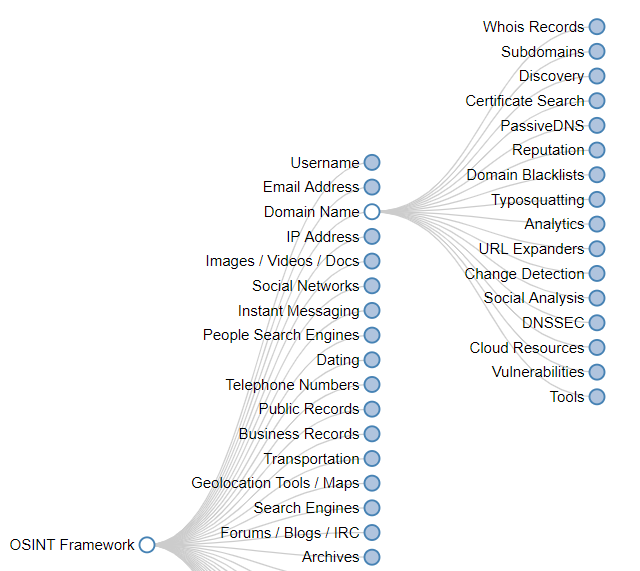When it comes to the world of websites, domain names play a crucial role. They are like the addresses of the online world, allowing people to find and visit different websites. But have you ever wondered how domain names are analyzed? In this article, we will dive into the fascinating world of analyzing domain names, exploring the tools and techniques that experts use to understand their value and potential.
Analyzing domain names is like peering into a crystal ball of the internet. It involves examining various factors such as the length, keywords, and extension of a domain name to determine its worth. By using specialized tools and techniques, professionals can gain insights into the SEO potential, branding opportunities, and marketability of a domain name. So, whether you’re a business owner looking to choose the perfect domain name for your website or a curious individual seeking to understand the intricacies of the online world, this article will serve as your guide to unraveling the mysteries of domain name analysis. Get ready to embark on a journey into the world of domain names and discover the tools and techniques that unlock their hidden potential.

Analyzing Domain Names: Tools and Techniques
Analyzing domain names is a crucial step in the process of building a successful online presence. Whether you are a business owner, a marketer, or an individual looking to establish your personal brand, understanding the tools and techniques for analyzing domain names can greatly impact your online strategy. In this article, we will explore various tools and techniques that can help you evaluate the effectiveness of domain names and make informed decisions. From keyword research to domain age analysis, we will cover the essential aspects of domain name analysis.
Keyword Research: Uncovering the Right Domain
When it comes to analyzing domain names, keyword research plays a vital role in determining the potential success of a domain. By identifying relevant keywords related to your industry or niche, you can uncover valuable insights that can guide your domain name selection. Keyword research tools such as Google Keyword Planner, SEMrush, and Ahrefs can provide you with data on search volume, competition, and related keywords. By analyzing this information, you can gain a better understanding of the keywords that are most important for your website and incorporate them into your domain name.
Another technique for analyzing domain names is to assess the search engine optimization (SEO) potential of a keyword. By using SEO analysis tools like Moz or SEMrush, you can evaluate the difficulty of ranking for a particular keyword. This information can help you determine whether a specific keyword should be included in your domain name or if it would be more beneficial to target a different keyword.
Domain Age Analysis: Assessing Authority and Trust
The age of a domain can significantly impact its authority and trustworthiness in the eyes of search engines and users. Analyzing the age of a domain can provide valuable insights into its potential for organic search visibility. Tools like Archive.org can help you determine how long a domain has been active and whether it has a history of malicious or spammy behavior. This information can help you assess the credibility of a domain and avoid potential penalties or issues down the line.
Additionally, analyzing the age of a domain can give you an idea of the competition you may face in your industry. Older domains tend to have a head start in terms of establishing authority and building backlinks. Understanding the age of your competitors’ domains can help you develop a strategy to compete effectively and differentiate yourself in the market.
Backlink Analysis: Evaluating Link Profile
Backlinks are an essential factor in search engine rankings, and analyzing the backlink profile of a domain can provide valuable insights into its authority and reputation. Tools like Moz’s Link Explorer or Ahrefs’ Site Explorer can help you evaluate the quality and quantity of backlinks pointing to a domain. By analyzing the backlink profile, you can identify potential opportunities for link building and gain insights into the strategies used by your competitors.
When analyzing backlinks, it is important to focus on quality rather than quantity. High-quality backlinks from authoritative websites can significantly boost your domain’s credibility and improve your search engine rankings. Conversely, low-quality or spammy backlinks can harm your domain’s reputation and lead to penalties from search engines.
Domain Availability: Finding the Perfect Name
Finding an available domain name that aligns with your brand or business can be a challenging task. However, with the right tools and techniques, you can streamline the process and increase your chances of securing a desirable domain.
One technique for analyzing domain availability is to use domain name generators. These tools allow you to input relevant keywords or phrases and generate a list of available domain name suggestions. Nameboy, Lean Domain Search, and Bust a Name are popular domain name generators that can help you brainstorm unique and memorable domain names.
Another approach is to analyze the domain marketplaces and auctions. Websites like Sedo, Flippa, and GoDaddy Auctions provide platforms for buying and selling domain names. By exploring these marketplaces, you can gain insights into current domain pricing trends and evaluate the availability of premium domain names in your industry.
Competitor Analysis: Gaining a Competitive Edge
Analyzing the domain names of your competitors can provide valuable insights and help you gain a competitive edge in your industry. By evaluating the domain names used by successful competitors, you can identify patterns, trends, and strategies that have proven effective.
One aspect to consider when analyzing competitor domains is their branding strategy. Assess how their domain names align with their brand identity and target audience. Look for keywords or phrases that resonate with their target market and consider incorporating similar elements into your own domain name.
Additionally, analyzing competitor domains can help you identify any gaps or opportunities in the market. If you notice that certain keywords or niches are not being effectively targeted by your competitors’ domain names, you can capitalize on these gaps and position yourself as a unique and valuable player in the industry.
Benefits of Analyzing Domain Names
Analyzing domain names provides several benefits for individuals and businesses looking to establish an online presence. By conducting thorough research and utilizing the right tools, you can:
1. Enhance SEO: By incorporating relevant keywords into your domain name, you can improve your website’s visibility in search engine results pages.
2. Establish Brand Identity: A well-chosen domain name can convey your brand’s personality and values, making a lasting impression on your target audience.
3. Increase Credibility: Analyzing domain age, backlinks, and reputation can help you build a trustworthy online presence and establish credibility in your industry.
4. Stand Out from Competitors: By conducting competitor analysis, you can identify unique opportunities and differentiate yourself from the competition.
5. Optimize User Experience: A user-friendly domain name that is easy to remember and type can improve the overall user experience and drive more traffic to your website.
Analyzing domain names is a critical step in building a successful online presence. By utilizing the right tools and techniques, you can make informed decisions and maximize the potential of your domain name. Whether you are starting a new website or rebranding an existing one, investing time in domain name analysis is essential for long-term success.
Key Takeaways: Analyzing Domain Names: Tools and Techniques
- Domain name analysis helps in understanding the value and potential of a website.
- Tools like WHOIS, Domain Age Checker, and Domain Authority Checker provide valuable insights.
- Keyword research helps in choosing a domain name that aligns with your target audience.
- Consider factors like brandability, memorability, and SEO-friendliness when selecting a domain name.
- Perform competitor analysis to understand their domain strategies and identify opportunities.
Frequently Asked Questions
What are the essential tools for analyzing domain names?
When it comes to analyzing domain names, there are several tools that can be incredibly useful. One of the most important tools is a domain name registrar, such as GoDaddy or Namecheap, which allows you to search for available domain names and provides information about their ownership and history. Another essential tool is a domain name generator, which helps you come up with creative and unique domain name ideas based on your keywords or preferences.
In addition, there are various online tools that can help you analyze the SEO value of a domain name. These tools provide insights into factors such as domain authority, backlink profile, and keyword rankings, which can be crucial in determining the potential success of a domain name. Some popular SEO tools for domain analysis include Ahrefs, SEMrush, and Moz.
What techniques can be used to analyze domain names?
When analyzing domain names, it’s important to consider various factors that can impact their value and potential success. One technique is to conduct a thorough keyword analysis to ensure that the domain name aligns with your target audience and industry. This involves researching relevant keywords and incorporating them into the domain name to enhance its search engine visibility.
Another technique is to analyze the branding potential of a domain name. This involves assessing its memorability, uniqueness, and overall appeal to potential customers. A strong, memorable domain name can help establish a strong brand identity and make it easier for customers to remember and find your website.
How can I evaluate the SEO value of a domain name?
Evaluating the SEO value of a domain name is crucial in determining its potential for organic search visibility and rankings. One way to evaluate the SEO value is by assessing the domain’s authority and trustworthiness. This can be done by analyzing factors such as domain age, backlink profile, and the presence of spammy or low-quality links.
Additionally, it’s important to consider the relevance of the domain name to your target keywords. A domain name that includes relevant keywords can help improve its search engine visibility and rankings. Finally, analyzing the domain’s previous rankings and performance in search engine results can provide valuable insights into its SEO value.
Are there any legal considerations when analyzing domain names?
Yes, there are legal considerations when analyzing domain names. It’s important to ensure that the domain name you choose does not infringe on any trademarks or copyrights. Conducting a thorough trademark search can help you avoid potential legal disputes. Additionally, it’s important to respect the intellectual property rights of others and refrain from using domain names that may be misleading or deceptive.
Furthermore, it’s essential to familiarize yourself with the regulations and policies set by domain name registrars and governing bodies, such as ICANN. These policies outline the rules and guidelines for domain name registration and usage, and violating them can result in legal consequences or the loss of your domain name.
What role does domain extension play in analyzing domain names?
The domain extension, also known as the top-level domain (TLD), plays a significant role in analyzing domain names. It can impact the perception, credibility, and search engine rankings of a website. Common domain extensions such as .com, .org, and .net are widely recognized and trusted by internet users, making them ideal choices for most websites.
However, there are also industry-specific domain extensions that can be relevant and valuable for certain businesses, such as .edu for educational institutions or .gov for government websites. It’s important to choose a domain extension that aligns with your industry and target audience to maximize the effectiveness of your domain name.
Domain Investor Reveals His Tricks to Find Great .COM Domain Names in Minutes!
Final Summary: Unlocking the Power of Domain Name Analysis
After diving deep into the world of analyzing domain names, we’ve discovered a treasure trove of tools and techniques that can help us unlock their true potential. By harnessing these resources, we can gain valuable insights and make informed decisions when it comes to our online presence. So, let’s recap what we’ve learned and how it can benefit us in the ever-evolving digital landscape.
Firstly, we explored the importance of keyword research in choosing the perfect domain name. By understanding the relevance and popularity of certain keywords, we can optimize our website for search engines and increase our chances of reaching a wider audience. Tools like Google Keyword Planner and Moz Keyword Explorer proved to be invaluable allies in this endeavor, providing us with valuable data and helping us make strategic choices.
Next, we delved into the world of domain name analysis tools. From WHOIS lookup to domain age checkers, these tools equip us with crucial information about a domain’s history, ownership, and credibility. Armed with this knowledge, we can make well-informed decisions when it comes to purchasing or negotiating for a domain. Additionally, we explored the power of domain name generators, which can spark our creativity and help us find unique and memorable domain names that align with our brand.
In conclusion, analyzing domain names is a vital step in building a successful online presence. With the right tools and techniques, we can uncover hidden opportunities, optimize our website for search engines, and make informed decisions when it comes to domain acquisition. So, let’s embrace the power of domain name analysis and unlock the full potential of our online endeavors. Remember, the possibilities are endless when we harness the insights hidden within domain names.






